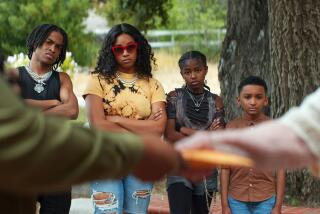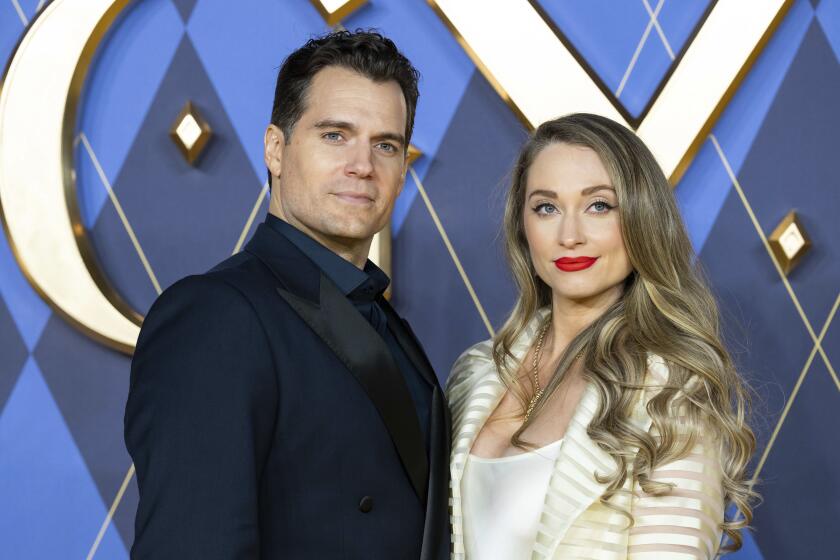Pop culture: empowering women or stereotypes?
Today’s question: Over the last few years, there’s been a mini-trend of popular culture that deals with pregnancy, relationships and other traditional “women’s issues,” but with a greater emphasis on frankness and empowerment. Is that just pop froth or is there something more meaningful going on? Click here to read previous installments from this week’s Dust-Up.
Keep the baby, keep the father this is empowering?
Point: Amanda Marcotte
The recent slate of comedies “Juno,” “Knocked Up” and “Baby Mama” that take for granted that women yearn for motherhood leaves me a little cold, because I’m permanently opposed to keeping any non-furry creatures that don’t draw income in my home. You’re a mother who has written movingly about motherhood in the past, Katha, so maybe you’ll have a more learned opinion on this. These movies want very hard to make me believe that they’re progressive and take on child-bearing in a new, “empowered” way, and in some ways they succeed. Women’s concerns are taken seriously, and they aren’t demonized for having casual sex, messy feelings or careers of their own. In fact, both “Knocked Up” and “Juno” take refreshing potshots at the discrimination pregnant women face at work and school.
But both movies have huge plot flaws that stem directly from the need to squeeze their characters into the Hollywood-mandated ending in which you have the baby and take on the man who got you pregnant. Though I liked much of the tight scripting of “Juno,” I never believed for a moment that such a sharp girl would be so easily intimidated by abortion protesters. To keep the pregnancy MacGuffin that drives the plot along, Juno had to have the baby, but did it have to be so ham-fisted and anti-feminist? After seeing that, you’d think that women who get abortions are monsters, and they’re not.
“Knocked Up” suffered from the opposite problem. That Katherine Heigl’s character would have the baby is entirely believable, but I didn’t buy that she would stick by Seth Rogen’s character after the first half a dozen times he demonstrated that he couldn’t be nice to her or hold himself together. Had the movie ended when Heigl delivered her speech to him about how they’re both very nice people who just don’t get along very well, it would have been the stunning and brave comedy it was made out to be. But shoving the two characters together at the end took all the fun out of it.
I haven’t seen “Baby Mama” yet, but I have seen the “shame face” my female friends who’ve seen it wear when discussing the movie, which means I probably won’t see it. I love Tina Fey on on the TV series “30 Rock,” but she writes her own material on that show, while some dude who will never fret about the contents of his womb wrote “Baby Mama.” But for honest, feminist-informed entertainment, it’s hard to beat “30 Rock,” where brilliant jokes mocking our sexist culture come at you almost too fast to catch them all. Of course, Fey’s character, Liz Lemon, is (mostly) single and childless on the show, so it’s falling far from the mark as a show with richly feminist views on motherhood and child-bearing.
Amanda Marcotte is the executive editor and writer for the blog Pandagon.net. Her first book, “It’s a Jungle Out There: The Feminist Survival Guide to Politically Inhospitable Environment,” is published by Seal Press.
Where are the Hollywood heroines?
Counterpoint: Katha Pollitt
One of the great achievements of feminism has been to make it possible for women (and men) to speak openly about all sorts of things that were formerly considered too shocking and shameful or trivial and silly to acknowledge. Unfortunately, the way pop culture has responded to this new openness can be superficial and, yes, sexist. I am getting very tired of reproductive themes, as if every woman wants kids and as if, deep down, that’s all women want. Even the character of Juno, who is completely unambivalent about giving her baby up for adoption, is partly motivated by her altruistic desire to provide a baby for another woman. (Juno isn’t intimidated by abortion protesters, though: She is moved by the lone protester outside the clinic, a shy and awkward classmate, and grossed out by the clinic’s gum-chewing, trash-talking, punked-out receptionist. Need I remind readers that clinic staffers are professionals and do not hand out fruit-flavored condoms?)
Other maternity movies: “Waitress,” whose heroine is so empowered by motherhood that she leaves her abusive moron of a husband within minutes of delivery, and “Then She Found Me,” in which a Brooklyn schoolteacher, nearing 40, faces divorce, infertility and the reappearance into her life of her biological mother fortunately, the mother is Bette Midler, who gives the film a mid-needed shot of vitality.
Each of the movies we’ve mentioned, Amanda, has its good points as well as a huge slathering of feel-good fantasy (having a baby helps you leave a violent man?), but enough already! There’s more to life than babies and I don’t mean “Sex and the City”-style female bonding over men and clothes. Where are the films about women achieving great things, fighting injustice, righting wrongs, having adventures and solving crimes? Why can’t the screwed-up cynical lawyer who takes on the evil system Michael Clayton, in his most recent incarnation be a woman? Movie heroines are few and far between, and interestingly, a lot of them are drawn from real life Norma Rae, Erin Brockovich and the women miners in “North Country,” for example. It’s as if moviemakers can’t conjure up in their imaginations a woman who’s strong, effective, self-directed and the heroine of her own life. In this, as in many other ways, life is much more interesting than the stories the mass media tell about it.
If you just looked at the magazine stand, for example, you’d think the most important facts about a woman any woman are her love life, her children, her looks and her addictions. Does she have a baby bump? Is her weight going up or down? Can she stop drinking before it’s too late? Women’s magazines have always been pretty retrograde, but now they are truly open in their contempt for women’s intelligence or even literacy. What popular culture needs: a women’s magazine with the broad appeal of People, the feminism of Ms and Bitch, the pizazz of Pandagon and the great writing and reporting of ... the Nation!
Katha Pollitt is a columnist for the Nation magazine. Her volume of personal essays, “Learning to Drive and Other Life Stories,” was published last fall by Random House.
| | | | Day 5
More to Read
Only good movies
Get the Indie Focus newsletter, Mark Olsen's weekly guide to the world of cinema.
You may occasionally receive promotional content from the Los Angeles Times.






